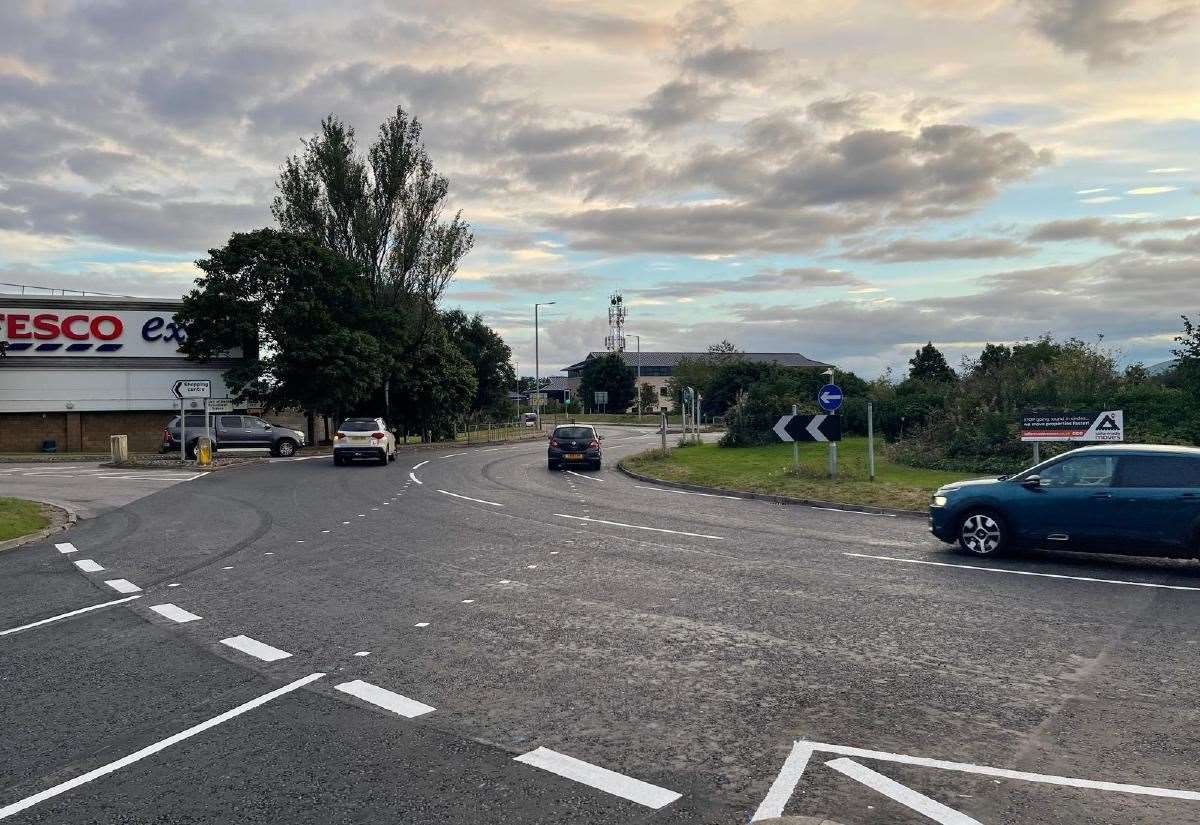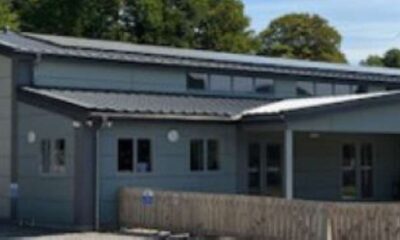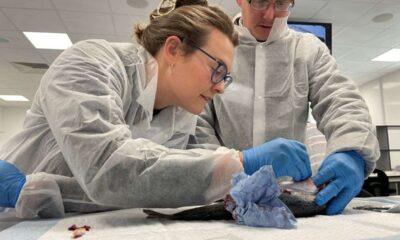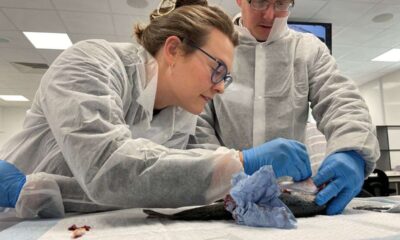Politics
Highland Council Faces Criticism Over Roundabout Changes, Tourist Tax Proposal

Highland Council has come under fire for its handling of a recent roundabout redesign in Inverness. Just hours after stating that no adjustments would be necessary, the council announced a temporary lane closure at the busy Inshes Roundabout. The decision followed confusion among drivers prompted by a new layout that merged three lanes into two due to misaligned road markings.
Residents and motorists expressed their frustration over the council’s inability to manage the roadwork effectively. As Heather C. Nicol remarked, “Got to love Highland Clowncil,” highlighting the widespread dissatisfaction with the council’s handling of the situation. Many locals criticized the council for what they perceived as a waste of public funds on hastily executed road markings.
The roundabout, which was recently resurfaced and repainted, has sparked various reactions from the community. Jane Smith noted, “Paying out twice for the job – get it right the first time!” Others expressed disbelief over how the council could have approved the design without adequate checks. Christine Cameron suggested that the council “should have checked with some of the kids from the local primary schools” to avoid such mistakes.
In addition to the roundabout issue, there is ongoing debate regarding the implementation of a tourist tax targeting motorhomes in the Highlands. Shaun Fraser, a candidate for the Scottish Labour Party in Inverness and Nairn, advocated for including motorhomes in the proposed visitor levy. He emphasized that while tourism significantly contributes to the Highland economy, it is crucial to consider the impact on local residents.
Fraser highlighted that Highland roads, originally designed for rural communities, are struggling to accommodate the increasing traffic, particularly from larger vehicles. He stated, “A well-designed visitor levy would balance the needs of visitors and locals and help fund the infrastructure which we all depend upon.” He criticized the current proposal, which excludes motorhomes, arguing that it leads to unregulated roadside parking, thereby disadvantaging local caravan parks and campsites.
The council’s approach to managing the influx of tourists and vehicles has drawn attention to the need for more sustainable practices. Fraser’s call for a comprehensive visitor levy includes options like charging for locally rented motorhomes and employing number plate recognition to manage the flow of campervans on Highland roads.
Meanwhile, the Highland & Islands Branch of the Scots Guards Association is seeking to strengthen its ranks. The branch welcomes former Scots Guardsmen as well as veterans from other regiments. They currently have 54 members and hold monthly meetings across locations like Inverness and Elgin. Roddy Davidson, the Secretary/Treasurer, encourages former soldiers to reconnect and rejoin the regimental community.
The situation surrounding the Inshes Roundabout and the proposed motorhome tax underscores the ongoing challenges faced by Highland Council. With increasing traffic and tourism, the council must find effective solutions that serve both visitors and residents alike. As the community navigates these changes, the demand for accountability and thoughtful planning remains paramount.
-

 World2 weeks ago
World2 weeks agoCoronation Street’s Shocking Murder Twist Reveals Family Secrets
-

 Entertainment1 week ago
Entertainment1 week agoAndrew Pierce Confirms Departure from ITV’s Good Morning Britain
-

 Entertainment5 months ago
Entertainment5 months agoKate Garraway Sells £2 Million Home Amid Financial Struggles
-

 Entertainment4 months ago
Entertainment4 months agoAnn Ming Reflects on ITV’s ‘I Fought the Law’ Drama
-

 Entertainment1 month ago
Entertainment1 month agoCoronation Street Fans React as Todd Faces Heartbreaking Choice
-

 Health4 months ago
Health4 months agoKatie Price Faces New Health Concerns After Cancer Symptoms Resurface
-

 World1 month ago
World1 month agoBailey Announces Heartbreaking Split from Rebecca After Reunion
-

 Entertainment2 weeks ago
Entertainment2 weeks agoTwo Stars Evicted from I’m A Celebrity Just Days Before Finale
-

 World2 weeks ago
World2 weeks agoKevin Sinfield Exceeds Fundraising Goal Ahead of Final Marathons
-

 Entertainment4 months ago
Entertainment4 months agoCoronation Street’s Carl Webster Faces Trouble with New Affairs
-

 Entertainment4 months ago
Entertainment4 months agoWhere is Tinder Swindler Simon Leviev? Latest Updates Revealed
-

 Entertainment5 months ago
Entertainment5 months agoMarkiplier Addresses AI Controversy During Livestream Response





















